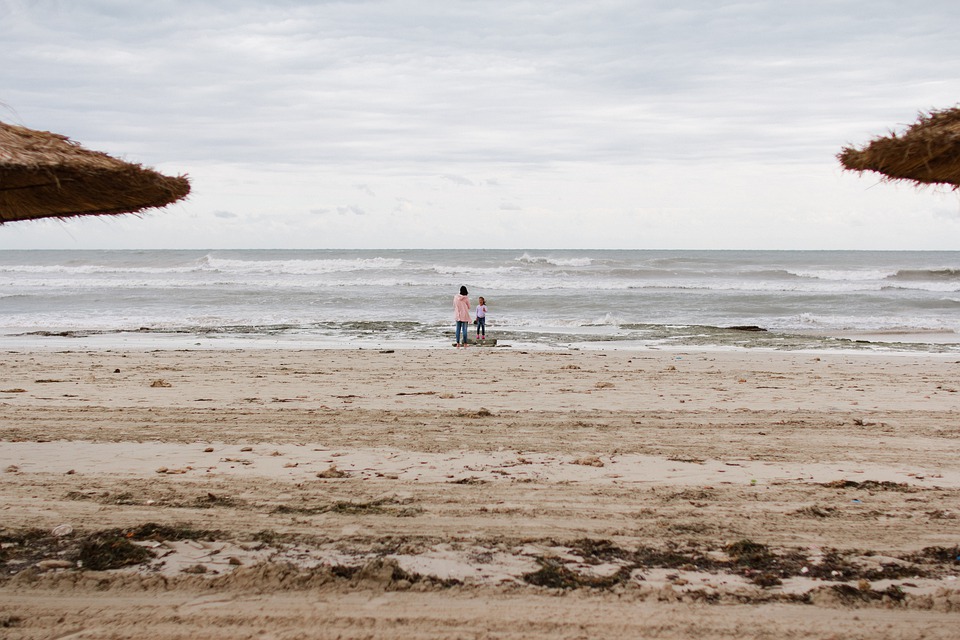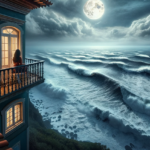Who are our mothers?
Change is what we all desire, and yet change is what we fervently resist. My mornings, especially the fine ones, do not appreciate any change to the routine; they do not like it when I place the teacup on the left side of the plate and frown if I sit on a different chair than every other day. And I happily oblige. It so happens that this applies to conversations as well. Breakfast table conversations could be about politics, inequality, governance, scandals, the romantic entanglements of a recently widowed woman in our relation and her audacity to pull off something this outrageous, and so on. But to venture outside these topics, which are basically reflections of our ideologies, and to step into genres which bring out the human in us – like passion, existentialism, mundane thoughts and fears, and everything in between, are strictly off the grid. And thus all hell broke loose one day when on the breakfast table I asked Amma – who are you as a person, what have you always enjoyed doing?
Although the question sounds simple, my thoughts were more complicated, and my intentions not so selfless. What I meant to ask was maybe not now, maybe thirty years of trying to appease every person and cutlery around you have worn out all meaning that question holds. But what did you enjoy doing when you were my age? Did you dance when the radio sang, and no one else was around? Did you read stories from newspapers someone left on the festival ground after eating up all the peanuts it held and hoped one day you could write the same way? Did you walk around imagining being the lead in a temple drama?
I so earnestly wanted a hint at what she is, as a person, beyond the role of a mother that she plays so well, that I broke the unspoken routine of the sacred breakfast table and blurted out the question. Her posture changed to that of a person lost in melancholic thoughts, with a grace one can observe on people trying to dig out something they have buried so deep inside them that it is merely a shadow, indistinguishable from a meaningless dream, and she answered.
No, I’ve never had any such inclinations. When I was your age, we had so many other concerns that these amusements were too luxurious to even imagine, and later, well, no, I’ve had nothing in particular that I enjoyed.
Don’t think that I believed for a second what she was so confident about. I have seen her raw enthusiasm when, once in a blue moon, she finally overcomes being conscious of others’ judgment and dances in a ‘thiruvathira’ group or talks about how her teachers took her for sprints and races during school, or does complex mathematical calculations in her mind and manages finances with an expertise that isn’t commonplace. And considering her very valid point of back then being difficult of times where one didn’t have the luxury to think any further than making ends meet, isn’t it a paradox that Papa, who dared to pursue a degree in literature, had the same luxury she was deprived of when economically and socially their situations were almost the same.
Him, I know of. He is the person who, in his illegible handwriting, jots down verses in spiral diaries, keeps track of all the books he has ever lent, even to his children, and has named his first book preemptively although he never gets down to writing it. But Amma, she is a mystery, and so are all the mothers who let their essence and passion get washed out by forces they were told were the purpose of their lives, which they are supposed to find pleasure in. I wonder if anything has changed, looking at her, hundred years since Virginia Woolf said ‘anything may happen when womanhood has ceased to be a protected occupation.’.
I’m not to be misunderstood that I give less value to the human drudgery that overtakes men as well in the process of living, or sustaining, life. But they can often be found venting over politics and sports and what not when women – and by women, I do not mean the independent women of the 21st century but the ones caught in between – stand by, waiting for a cue to bring in the tea.
I cannot but wonder what would have happened if all the intellect and art, lost over centuries behind closed doors under the pretense of belonging to the wrong gender, were put to use before their owners forgot they ever possessed it. Some wars might have been avoided, some new ones even created. We might have cured diseases from which people die even today. There might have been masterpieces created in the hands of ordinary women, without terming the few who had the impudence to pursue something beyond the duties assigned to the protected occupation of womanhood as outcasts. The privileged, yet ignorant, would not have given the term ‘feminist’ an abusive turn where it refers to destroyers of peace and troublemakers who meddle with forces beyond their control. It would have meant what it was always supposed to – equality. The world, in this wonderment, is definitely a better place.
Our mothers have played their roles so well that now the role is who they are, and who they were is lost. I hope it’s not lost beyond redemption because our parts, although unknowingly, were not so small in the cause. To me, no amount of glorification of the sacrifice can make amends for the loss of identity. The best we can do is ask the question – who are our mothers and hope the question lingers enough to bring back what is lost or act as a reminder to be aware of our identity and hold it close.
<Originally published on Muffled>



